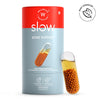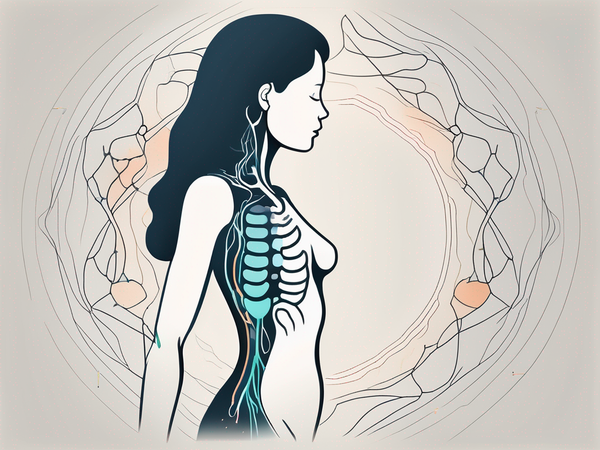Calcium is the cornerstone of strong bones, with 99% of it stored in our bones and teeth, helping maintain skeletal strength. Since our bodies can't produce calcium on their own, it’s essential to get it from the foods we eat. For vegetarians, plant-based sources of calcium are abundant, offering everything from leafy greens to fortified alternatives, nuts, and seeds.
Adding calcium-rich foods like collard greens, tofu, almonds, and fortified plant milks into your daily meals can provide the nutrients your body needs to build and maintain strong bones. Not only do these foods help prevent calcium deficiencies, but they also come with additional health benefits, like supporting heart health, nerve function, and muscle strength.
For vegetarians, there’s a wealth of calcium-rich foods that are as satisfying as they are nutrient-packed. Let’s explore them!
Best Calcium-Rich Options
1. Leafy Greens
When it comes to high-calcium vegetarian foods, dark leafy greens top the charts. Kale, collard greens, bok choy, and turnip greens are packed with bioavailable calcium. Not only do they contribute to bone health, but they’re also brimming with vitamin K, another nutrient essential for strong bones. A cup of cooked collard greens provides about 268 mg of calcium, making it an easy win for your daily intake.
2. Almonds
Did you know that almonds are one of the highest calcium-rich nuts? Just 28 g (about 22 almonds) contains 76 mg of calcium. They also provide healthy fats, magnesium, and vitamin E, all of which contribute to overall bone and skin health. So whether you snack on a handful or blend them into almond butter, you’re doing your bones a favor.
3. Chia Seed
Chia seeds are proof that good things come in small packages. Two tablespoons provide about 180 mg of calcium, alongside a hefty dose of omega-3 fatty acids and fiber. Stir them into yogurt, add them to smoothies, or make a delicious chia pudding to give your bones the boost they need.
4. Tofu & Tempeh
If you’re following a vegetarian diet, tofu and tempeh should be on your radar. Calcium-set tofu can provide up to 350 mg of calcium per half-cup—a game-changer for those looking to up their intake. Additionally, tempeh, a fermented soy product, offers a solid 120 mg per serving, along with gut-friendly probiotics.
5. Fortified Plant-Based Milk
Whether you prefer almond milk, soy milk, oat milk, or coconut milk, many brands fortify their plant-based milk with calcium to match the levels found in dairy. A cup of fortified soy milk can contain up to 300 mg of calcium, while fortified almond or oat milk often provides around 250 mg per serving.
6. Legumes
Beans, lentils, and chickpeas are not just rich in protein and fiber but also a fantastic source of calcium. White beans and chickpeas, in particular, stand out as nutrient-dense options for vegetarians looking to support their bone health naturally. A cup of cooked white beans provides about 160 mg of calcium, while chickpeas offer 80 mg per serving.
7. Seaweed
Seaweed, particularly wakame and nori, contains surprising amounts of natural calcium. A serving of dried wakame provides about 150 mg of calcium, along with iodine and other trace minerals essential for bone strength and thyroid function.
8. Figs
If you have a sweet tooth, figs might be your new best friend. Just five dried figs contain 135 mg of calcium, along with antioxidants and fiber. Eat them as a snack, add them to your breakfast bowl, or blend them into smoothies for a nutrient-packed treat.
9. Fortified Foods
Fortified foods make meeting your calcium goals easier than ever. From breakfast cereals to orange juice, these products are often enriched with calcium and vitamin D. They’re especially useful for vegetarians who might need an extra dietary boost. A serving of fortified orange juice can contain up to 300 mg of calcium, while certain fortified cereals provide 100–200 mg per serving.
Nutrients That Support Calcium Absorption
It’s not just about getting enough calcium; your body also needs the right nutrients to effectively absorb and utilize it. Here are some key nutrients that support calcium absorption and enhance its benefits:
-
Vitamin D: This vitamin is crucial for calcium absorption in the gut. Without adequate vitamin D, your body can't absorb calcium effectively, even if you're eating enough of it. Foods like fortified plant milk, mushrooms, and exposure to sunlight can help boost your vitamin D levels.
-
Magnesium: Magnesium plays a supporting role in calcium metabolism and helps convert vitamin D into its active form, which is essential for calcium absorption. You can find magnesium in foods like leafy greens, almonds, avocados, and seeds.
-
Vitamin K2: This vitamin helps direct calcium to the bones and prevents it from depositing in soft tissues. Leafy green vegetables like kale, spinach, and broccoli are rich in vitamin K2, supporting optimal bone health.
-
Phosphorus: Phosphorus works alongside calcium to form bones and teeth. It's found in foods like beans, lentils, tofu, and nuts, making it an excellent addition to a plant-based diet for bone health.
Incorporating calcium-rich foods into a vegetarian diet is a simple yet powerful way to support strong bones and overall health. From leafy greens to plant-based milk, tofu, nuts, and seeds, there are plenty of delicious options to meet your calcium needs. Pair these foods with nutrients that enhance calcium absorption, like vitamin D and magnesium, for maximum benefit. By making these calcium-packed foods a regular part of your meals, you can naturally boost bone health, promote muscle strength, and enjoy a well-rounded, nutrient-rich diet.
In addition to food, incorporating supplements can help ensure you're meeting your calcium needs, especially if you find it challenging to get enough from diet alone. Choose high-quality supplements that include vitamin D and magnesium to support optimal calcium absorption and bone health.



























